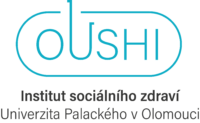GAČR Projekty
The Grant Agency of the Czech Republic (GACR) is a state institution supporting basic research across all scientific disciplines, exclusively from public funds. It started its activities in 1993. Each year, it awards financial support for scientific projects to both erudite scientists and teams, as well as to young and emerging scientists, within the framework of announced programmes, based on the results of a public competition in research and development. It also funds international scientific projects.
ONGOING PROJECTS
No ongoing projects at the moment.
COMPLETED PROJECTS
Spirituality and Health among Adolescents and Adults in the Czech Republic
Type of project: GACR
Project Number: 15-19968S
Total support: CZK 2 916 000
Implementation period: 1/2015-12/2017
The project focused on the connection between spirituality and health in adolescents and adults in the Czech Republic. It combined a qualitative and quantitative approach to research. In the quantitative part, it examined variables related to spirituality and health, and social determinants. The project consisted of three parts: data from the 2014 Youth and Health Study (HBSC study) related to health and spirituality were analysed. Participants in this part of the study were adolescents aged 13 and 15 years (each group N = 2500). The methods used here are the SWBS short form, and HBSC Symptom Checklist. A representative sample of adults (N = 600) was administered the SWBS short form, Facit Sp and SF 36 health status questionnaire. Both above quantitative studies were complemented by qualitative interviews. During 2015, 30 in-depth semi-structured interviews were conducted among adolescents (11-15 years) and 42 interviews among adults.
These interviews will be evaluated in terms of interpretative phenomenological analysis. In the qualitative part, the project relies on the excellent international DIPEx methodology developed by the Health Experiences Research Group, University of Oxford, UK.
These interviews will be evaluated in terms of interpretative phenomenological analysis. In the qualitative part, the project relies on the excellent international DIPEx methodology developed by the Health Experiences Research Group, University of Oxford, UK.
The association of major life events across the lifespan, insecure attachment style due to childhood trauma and resilience with health
Type of project: GACR
Project Number: 19-18964S
Total support: CZK 2 979 000
Implementation period: 1/2019-12/2021
Within the framework of the GAČR project, in accordance with the project proposal and its topics, we have published an article in the Q1 journal (on the topic of childhood trauma - anxiety and chronic pain in adulthood), the second article (on the topic of migraine - childhood trauma; gender differences) has been submitted since the summer and only at the beginning of February 2020 we have received a negative response, hence we are preparing the article for submission to another professional journal. At the same time, clinical recruitment in Kroměříž and Sternberg (neurotic and addicted patients) has been completed. We presented the data at an international conference. The project also includes a paper on IBD (inflammatory bowel disease). By July 2020, the plan is to submit at least 1-2 more articles in line with the project proposal (one on the topic of resilience in the context of stressors and one on the topic of childhood trauma and relational attachment).
Biological and psychological aspects of spiritual experiencing and their relation to health
Type of project: GACR
Project Number: 19-19526S
Total support: CZK 4 678 000
Implementation period: 1/2019-12/2021
The project aims to to map the overlap in the fields of psychology, spirituality and biology. This requires sufficient expertise in all areas, including the skills to implement methods of biological analysis into practice. Many studies report a positive relationship between religiosity/spirituality (R/S) and health. This project aims to bridge this gap in our knowledge. We want to combine the use of classical quantitative and qualitative approaches used in psychological research with the use of psychobiological indicators (fMRI, oxytocin and cortisol analysis). Furthermore, our aim is to offer a new tool for quantitative measurement of implicit attitudes, which would help to solve problems in the field of social desirability.
